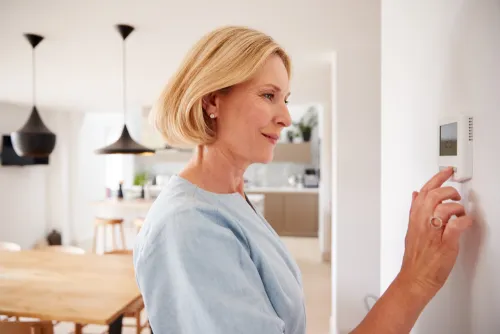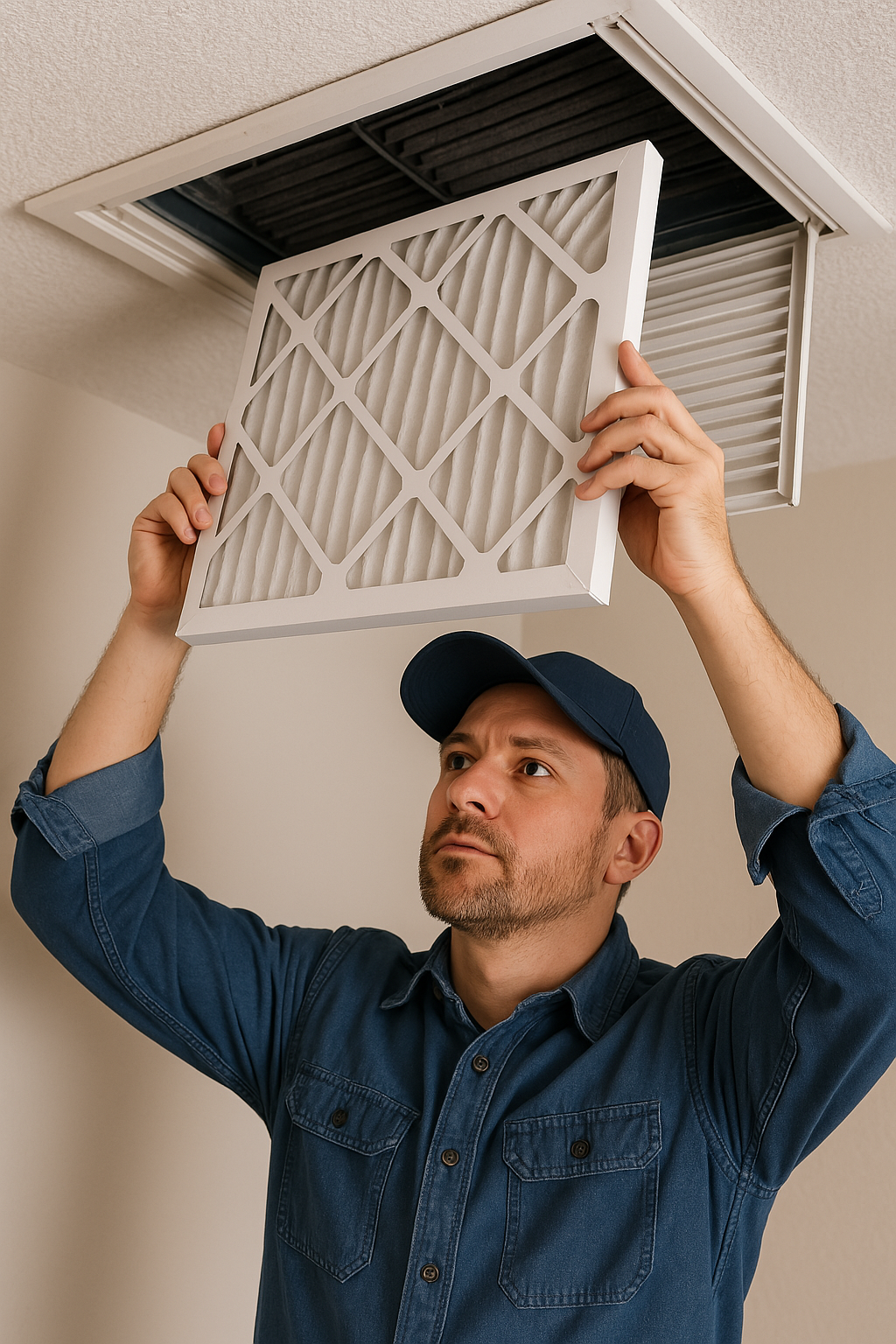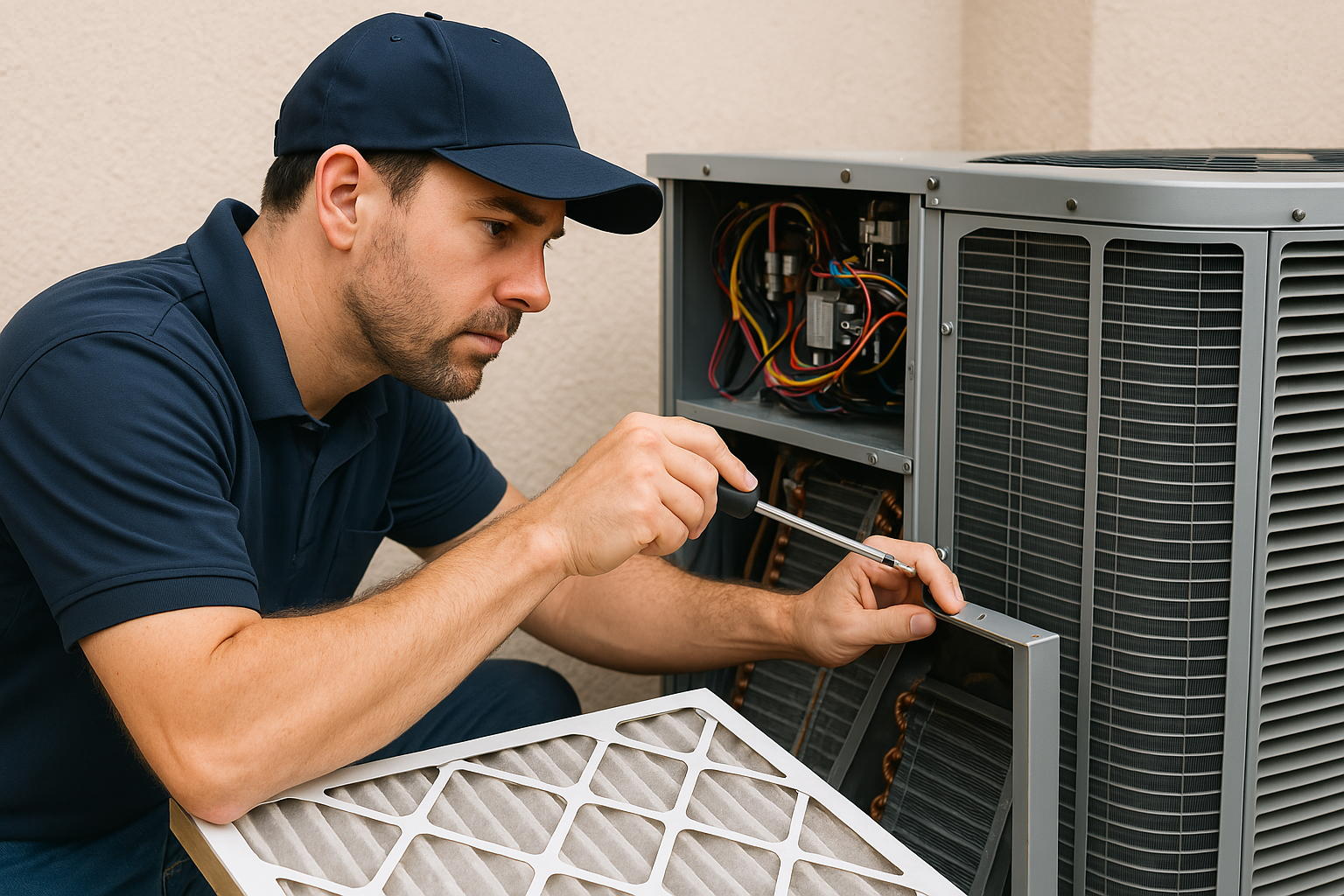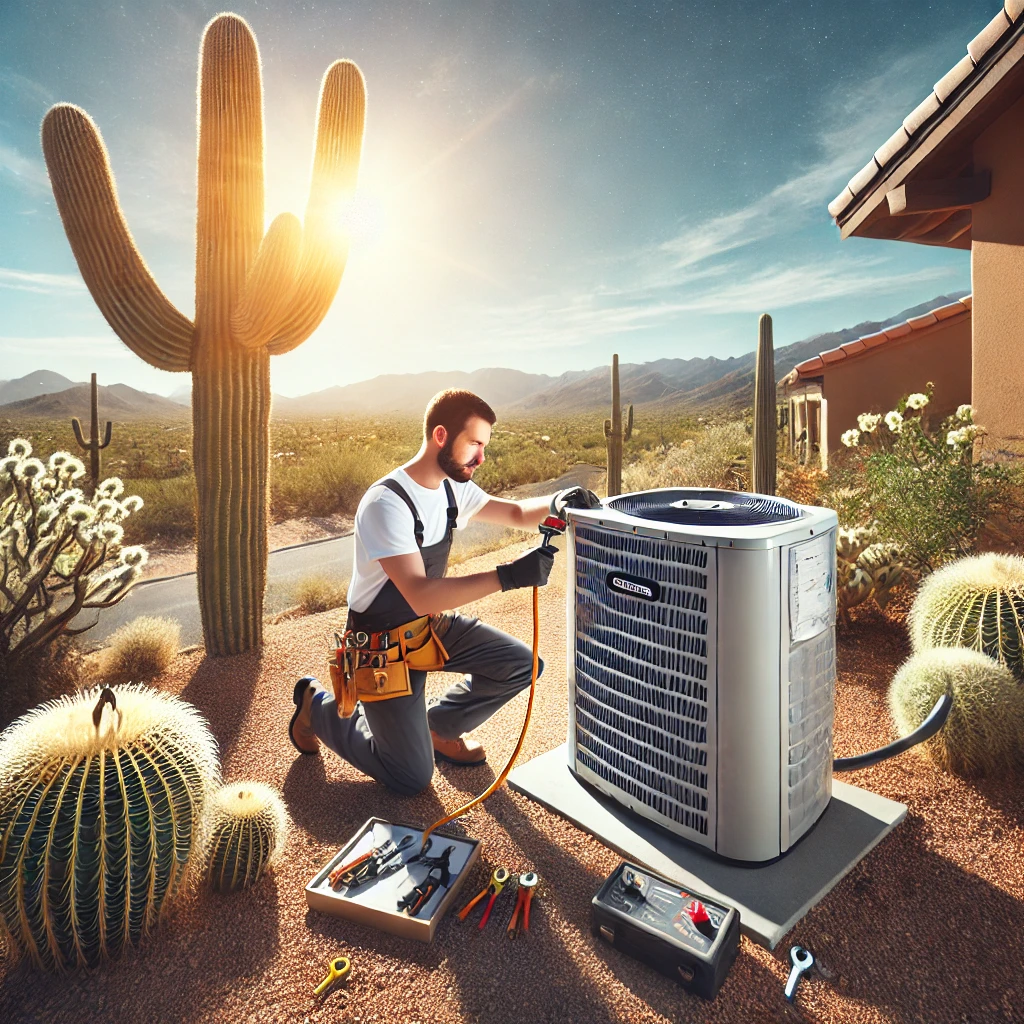Introduction
Indoor air quality (IAQ) often goes overlooked, especially in regions like Phoenix where the dry desert air can bring specific challenges. Many Phoenix residents assume that because they’re indoors, they’re protected from pollutants. However, desert climates present unique air quality concerns that can impact health, comfort, and overall quality of life. In this article, we’ll explore why indoor air quality matters so much in desert environments and how Phoenix residents can benefit from air purifiers and other strategies to maintain a clean, healthy home environment.
Benefits of Air Purifiers for Phoenix Residents: Air purifiers work by filtering out airborne particles such as dust, pollen, and bacteria, making them particularly effective in desert environments. Many modern air purifiers use HEPA (High-Efficiency Particulate Air) filters, which can trap up to 99.97% of particles as small as 0.3 microns. By removing these fine particles, air purifiers reduce the concentration of pollutants indoors, providing Phoenix residents with cleaner, healthier air to breathe.
Why Indoor Air Quality is Critical in Desert Climates
Living in a desert climate like Phoenix’s presents particular air quality issues. The dry, dusty environment brings a constant influx of outdoor particles, such as dust, pollen, and even bacteria. Unlike more humid regions, the lack of moisture in the air means that particles are less likely to settle, making them more prone to being circulated into indoor spaces. This not only affects air quality but can also exacerbate respiratory issues, allergies, and skin conditions for Phoenix residents.
How Dust and Pollen Enter Your Home: In desert environments, dust and pollen can easily enter your home through open windows, doors, and even ventilation systems. Once indoors, these particles accumulate, affecting both air quality and comfort. In fact, the dust here in Phoenix can include particles like silica and other fine contaminants that, when inhaled regularly, may pose health risks over time. This is especially concerning for those with asthma or other respiratory conditions, making it essential to control indoor air quality.

Health Impacts of Poor Indoor Air Quality
Dry, dusty air can irritate the respiratory system, leading to coughing, sneezing, and in severe cases, exacerbating asthma or chronic bronchitis. Indoor air pollutants, like dust mites and pet dander, tend to accumulate more in dry environments because there is less humidity to keep them grounded. With poor indoor air quality, Phoenix residents may experience worsened respiratory symptoms, especially during the hot, dry summer months.
Allergies and Skin Irritation: High levels of indoor dust can trigger allergic reactions, especially in desert climates where allergen levels can be consistently high. Additionally, dry indoor air can lead to skin irritation, as moisture levels in the air are often low. This is especially true in Phoenix’s extreme climate, where both indoor and outdoor air are extremely arid. For residents, maintaining good indoor air quality is crucial to avoid allergies and skin discomfort year-round.
Choosing the Right Air Purifier
When selecting an air purifier for your home in Phoenix, look for models with HEPA filters, as they are highly effective at removing small particles commonly found in desert air. Additionally, consider air purifiers with activated carbon filters, which can absorb odors and volatile organic compounds (VOCs) that may be present indoors. Investing in a high-quality air purifier will help maintain a healthier indoor environment, even during the dustier times of the year.
Improving Respiratory Health and Comfort: Using an air purifier can lead to noticeable improvements in respiratory health, particularly for individuals with asthma, allergies, or other respiratory conditions. With reduced indoor pollutants, you may find it easier to breathe and experience fewer allergy symptoms. In a desert climate like Phoenix, where allergens and dust are persistent, air purifiers can make a significant difference in day-to-day comfort.
Additional Tips for Better Indoor Air Quality in Phoenix
One of the simplest and most effective ways to improve indoor air quality is to regularly replace your HVAC filters. In desert climates, filters can quickly become clogged with dust and other particles, reducing their effectiveness. Aim to change filters at least every 1-3 months, or even more frequently if you notice dust buildup.
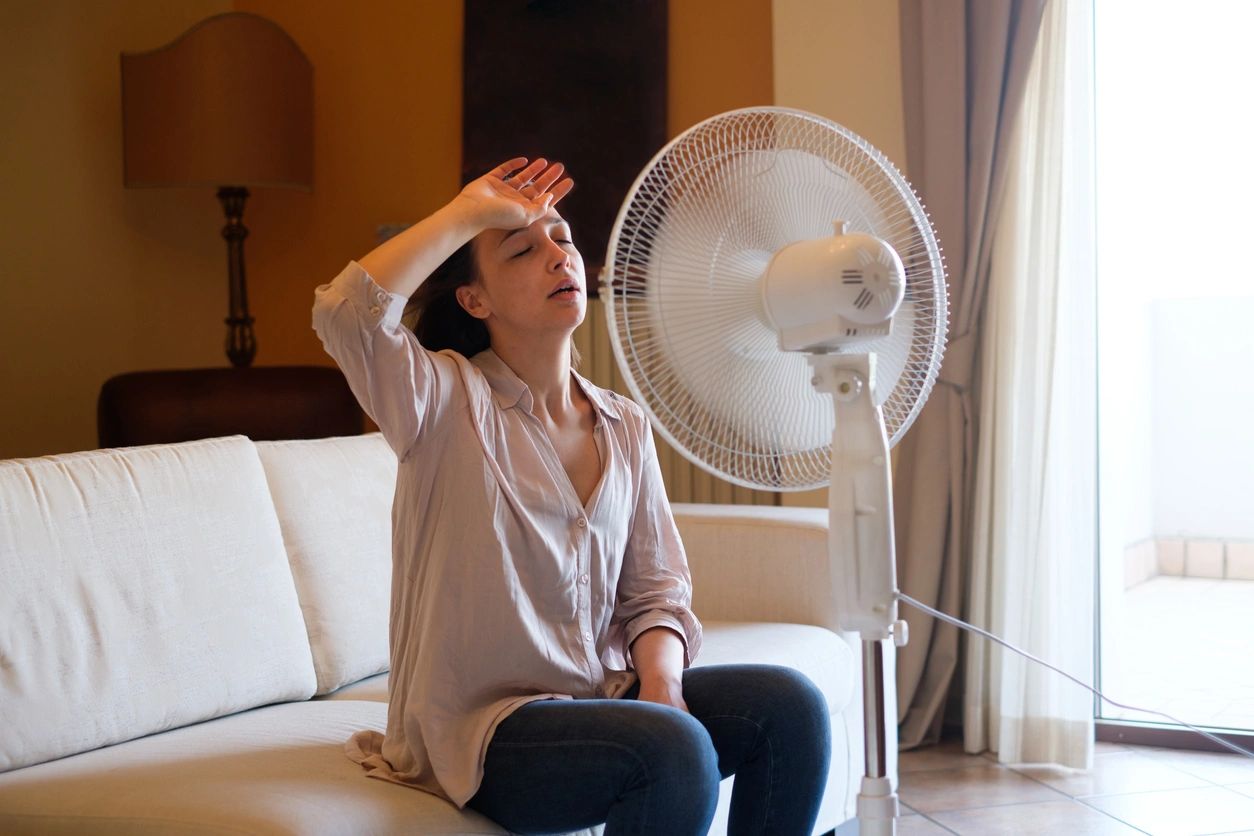
Keep Windows and Doors Closed During Windy Days
Wind can carry significant amounts of dust and pollen into your home, especially during storms or windy days. By keeping windows and doors closed during these times, you can reduce the amount of outdoor particles entering your indoor spaces. Additionally, consider using weather-stripping to seal any gaps that might let in dust from outside.
Why Indoor Air Quality is a Year-Round Priority: In Phoenix, where the climate remains dry and dusty throughout the year, indoor air quality should be a consistent priority. Poor air quality can contribute to long-term health issues and reduce overall comfort in your home. By taking proactive steps, such as using air purifiers and maintaining a clean indoor environment, Phoenix residents can breathe easier and enjoy a healthier home.
Use Indoor Plants Wisely
Indoor plants can help improve air quality by naturally absorbing some airborne toxins and releasing oxygen. However, in a dry climate like Phoenix, it’s important to choose plants that won’t contribute to indoor humidity too much. Some excellent options include aloe vera, snake plants, and spider plants. Remember to avoid overwatering, as this can lead to mold growth and negatively affect air quality.
Vacuum and Dust Regularly: Dust can quickly accumulate in desert climates, so regular cleaning is essential. Use a vacuum with a HEPA filter to trap dust particles and avoid recirculating them into the air. Dust surfaces with a damp cloth to capture particles rather than just moving them around. Frequent cleaning will help reduce dust buildup, leading to improved air quality in your home.
Conclusion: Stay Healthy with Cleaner Indoor Air
Indoor air quality is vital for Phoenix residents, especially in a desert climate where dust and allergens are prevalent. By using air purifiers, changing air filters regularly, and implementing other strategies, you can create a healthier indoor environment that supports respiratory health and comfort. For those living in dry, dusty areas, investing in good indoor air quality measures will improve both short-term and long-term well-being. If you’re interested in learning more about indoor air quality solutions, check out trusted resources like EPA’s Indoor Air Quality site to stay informed on best practices.






